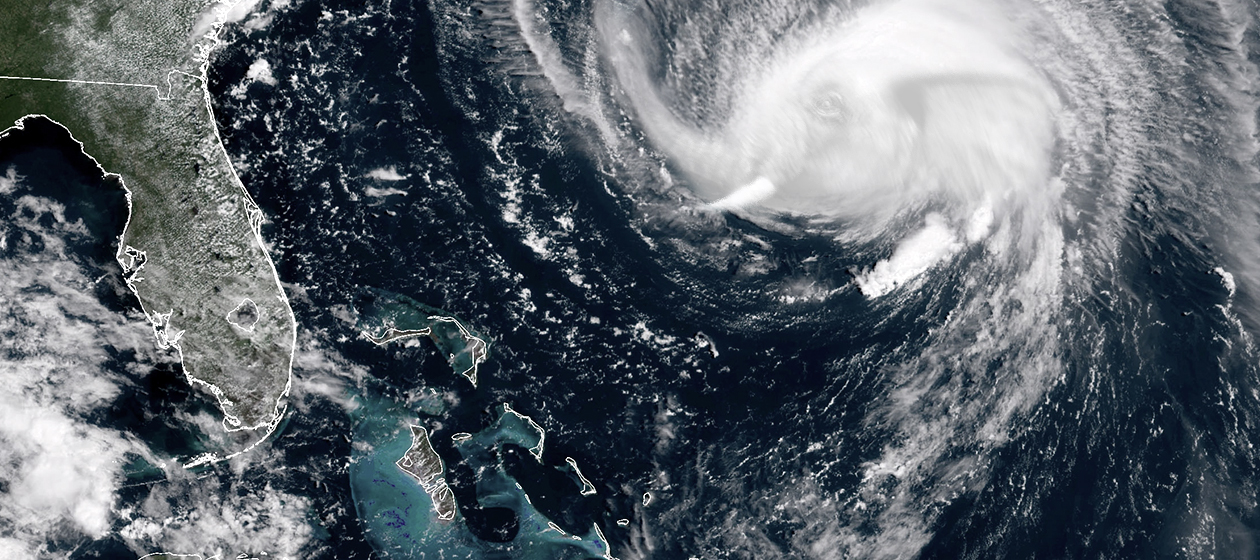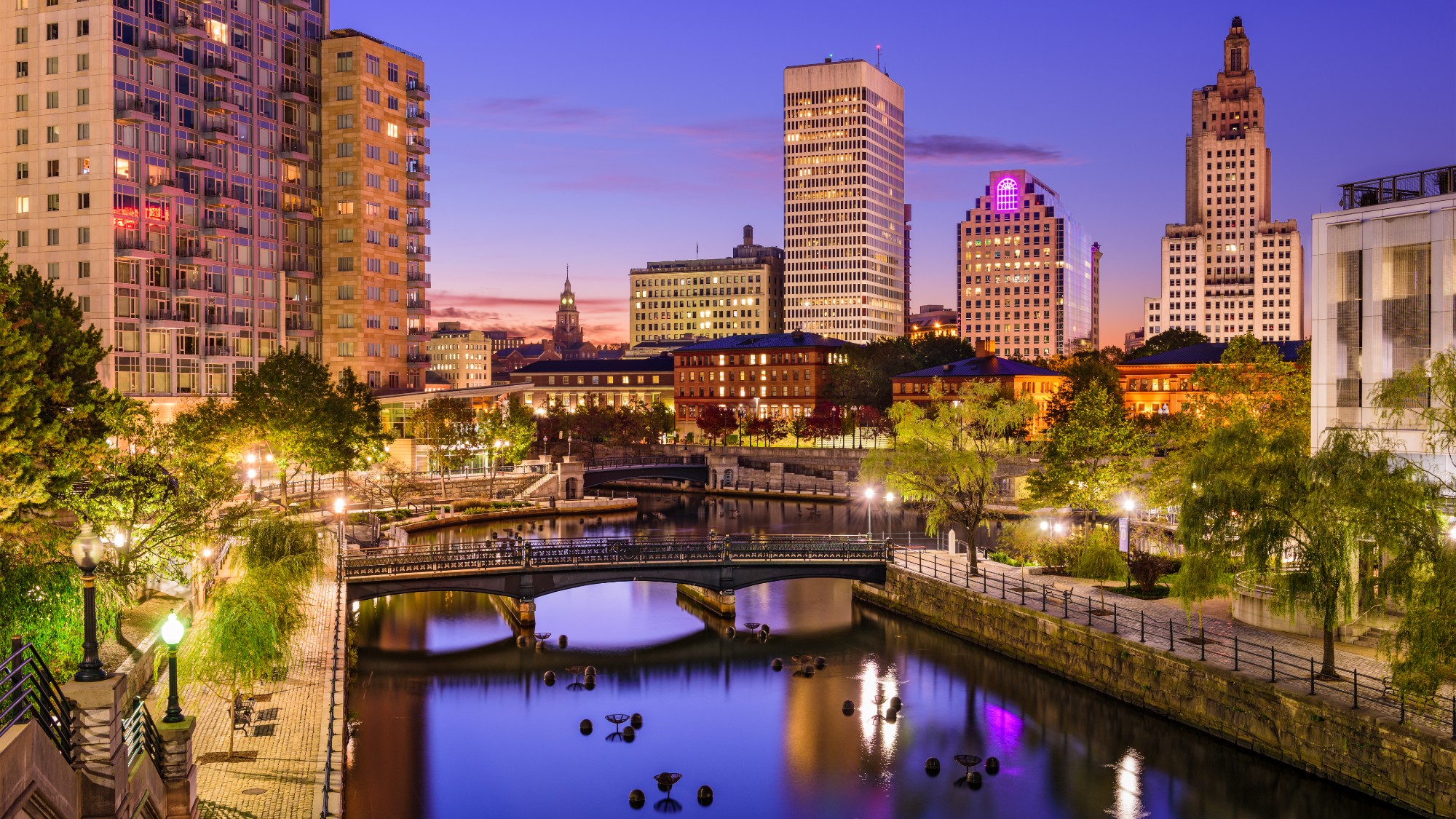Republicans' hurricane hubris
Republican climate deniers sowed the wind. Now Americans will reap the whirlwind.


Another enormously powerful storm is barreling towards the United States. Hurricane Florence is projected to strike the Carolinas and Georgia late this week, inflicting severe wind and storm surge damage. Just as dangerous is the projection that it will probably stall out near the coast, dumping most of its rain in a small area and causing massive flooding far inland — just as Hurricane Harvey did to Houston last year.
It is a terrifying and dangerous situation for residents of the affected states. In the longer term, it is also an object lesson for how conservative Republicans are failing the absolute most basic task of governance: representing the interests of their constituents. Republican policymakers have been twiddling their thumbs while a huge threat bears down on their states — if not actively making things worse.
Climate change is the unavoidable background for all major weather events now. While one can't pin any one event on it, there is decently strong suggestive evidence that climate change is making hurricanes more powerful and will continue to do so in the future. And as Robinson Meyer points out, there is initial evidence that it's slowing them down as well — thus making their flooding worse. Hurricanes have slowed by about 10 percent since 1949 across the world, and "a warmer world will have more stagnant, slow-moving air masses," he writes.
Subscribe to The Week
Escape your echo chamber. Get the facts behind the news, plus analysis from multiple perspectives.

Sign up for The Week's Free Newsletters
From our morning news briefing to a weekly Good News Newsletter, get the best of The Week delivered directly to your inbox.
From our morning news briefing to a weekly Good News Newsletter, get the best of The Week delivered directly to your inbox.
More important, the rising sea level (up four to eight inches and counting over the last century) is unquestionably caused by climate change, and will certainly badly worsen the flooding from Florence.
Of all the Republican state governments on the Eastern Seaboard, North Carolina's is probably the most irresponsible. As Jenavieve Hatch explains, six years ago the Republican majority in the state legislature in North Carolina passed a bill suppressing a report from the state's own experts warning of the risks of sea level rise:
A panel of scientists on the state Coastal Resources Commission issued a dire warning in March 2010, estimating that the sea levels along the state's coast would rise 39 inches over the next century. Conservative lawmakers and business interest groups feared the report would hurt lucrative real estate development on the state's coast and sought to undermine it … Conservative state Rep. Pat McElraft, whose top campaign contributors were the North Carolina Association of Realtors and the North Carolina Home Builders' Association, drafted a bill in response that rejected the panel's predictions. [Huffington Post]
The bill passed in 2012. It's classic American conservative policymaking — half taking dictation from big business, half science denial. The latter part is important, as no sensible real estate investor really wants to see his properties flooded or blasted down their foundations by gale-force winds. And now the bill for this awesome act of hubris and self-harm is going to arrive tomorrow — and I'd wager wealthy conservatives will be as affected as anyone.
South Carolina isn't quite so obviously self-harming as its neighbor, but that's about all that can be said for it. Its Republican state government and congressional delegation is filled with science deniers and people who automatically vote against any climate diplomacy or regulation. Meanwhile, Georgia's Gov. Nathan Deal (R) used to be a full-fledged climate denier in Congress (like the rest of the delegation), but has clammed up on the issue since becoming governor in 2011.
This sort of retreat from denial seems more and more common in conservative politics (perhaps driven by these clockwork extreme weather disasters), replaced mainly by a lot of evasion and double talk. But that is far from good enough. Just like Florida, the Carolinas and Georgia very badly need two things: a massive federal investment program to ruggedize their built environment and an all-out diplomatic push to secure an international agreement on climate policy. Local politicians won't even be able to properly help their own cities alone, much less conduct international diplomacy. The biggest greenhouse gas emitter by far these days is China, so any successful attack on climate change must be international, and hence must be led by the federal government.
Mainly this would mean mounting our own crash decarbonization program, and using that progress to challenge, help, and stimulate other such efforts. Ultimately China is just as doomed as Florida if climate change is not checked, which is why they are making heroic efforts to cut their emissions and build out their renewable sector.
The U.S. has a lot of power and wealth. We could be pulling our weight here, and helping our own citizenry in the process. But instead we're the worst laggard in the world. And when Trump pulled out of the Paris climate accords, virtually the entire Republican Party either cheered or kept quiet. The citizens of Georgia and the Carolinas — many of whom tried their hardest to get their representatives to pay attention to reality, it's important to note — are about to pay the price.
Sign up for Today's Best Articles in your inbox
A free daily email with the biggest news stories of the day – and the best features from TheWeek.com
Ryan Cooper is a national correspondent at TheWeek.com. His work has appeared in the Washington Monthly, The New Republic, and the Washington Post.
-
 Doom: The Dark Ages – an 'exhilarating' prequel
Doom: The Dark Ages – an 'exhilarating' prequelThe Week Recommends Legendary shooter adds new combat options from timed parries to melee attacks and a 'particularly satisfying' shield charge
-
 7 US cities to explore on a microtrip
7 US cities to explore on a microtripThe Week Recommends Not enough vacation days? No problem.
-
 Sudoku medium: May 14, 2025
Sudoku medium: May 14, 2025The Week's daily medium sudoku puzzle
-
 The JFK files: the truth at last?
The JFK files: the truth at last?In The Spotlight More than 64,000 previously classified documents relating the 1963 assassination of John F. Kennedy have been released by the Trump administration
-
 'Seriously, not literally': how should the world take Donald Trump?
'Seriously, not literally': how should the world take Donald Trump?Today's big question White House rhetoric and reality look likely to become increasingly blurred
-
 Will Trump's 'madman' strategy pay off?
Will Trump's 'madman' strategy pay off?Today's Big Question Incoming US president likes to seem unpredictable but, this time round, world leaders could be wise to his playbook
-
 Democrats vs. Republicans: who are the billionaires backing?
Democrats vs. Republicans: who are the billionaires backing?The Explainer Younger tech titans join 'boys' club throwing money and support' behind President Trump, while older plutocrats quietly rebuke new administration
-
 US election: where things stand with one week to go
US election: where things stand with one week to goThe Explainer Harris' lead in the polls has been narrowing in Trump's favour, but her campaign remains 'cautiously optimistic'
-
 Is Trump okay?
Is Trump okay?Today's Big Question Former president's mental fitness and alleged cognitive decline firmly back in the spotlight after 'bizarre' town hall event
-
 The life and times of Kamala Harris
The life and times of Kamala HarrisThe Explainer The vice-president is narrowly leading the race to become the next US president. How did she get to where she is now?
-
 Will 'weirdly civil' VP debate move dial in US election?
Will 'weirdly civil' VP debate move dial in US election?Today's Big Question 'Diametrically opposed' candidates showed 'a lot of commonality' on some issues, but offered competing visions for America's future and democracy